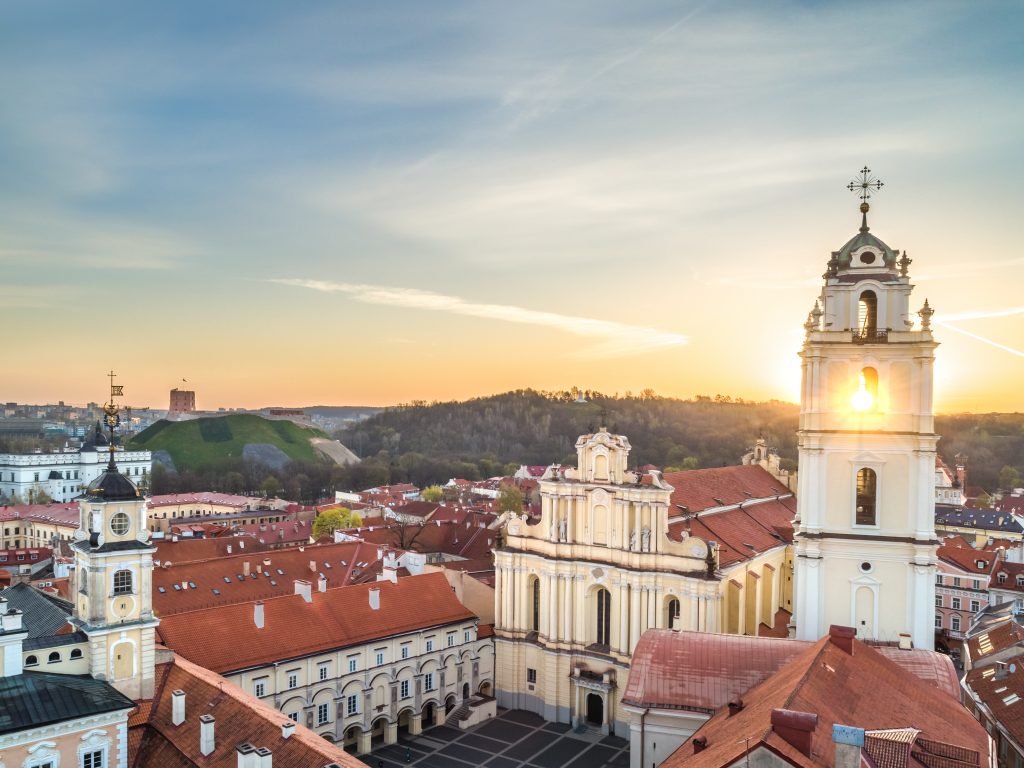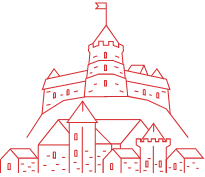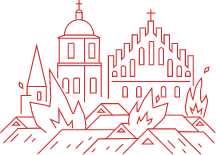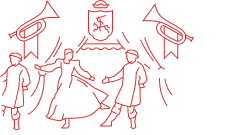Vilnius à la carte
Vilnius as we know it today started with a compelling message. Just 700 years ago, in 1322-1323, Gediminas, the Grand Duke of Lithuania sent seven diplomatic letters to Europe. In one of them, the ruler mentioned Vilnius, the state’s capital, for the first time. The letters reached their intended recipients and city life soon became part of European history: Vilnius opened up to the world and the world discovered Vilnius.

In 2023, residents of Vilnius will celebrate this exceptional anniversary!
It is difficult to say exactly when the first inhabitants came to the territory of present-day Vilnius, when they lit the first bonfire and when the names Vilnelė and Vilnius were first pronounced in this settlement. It happened long before the time of Grand Duke Gediminas. However, the ruler sent an important message from the then fringe of European civilization – the Grand Duchy of Lithuania and Vilnius were noted as worthy of Europe and able to help expand the continent’s borders. Vilnius needed Europe, but Europe also needed Vilnius. The last 700 years reflect the peculiar fate of Vilnius and perhaps its mission – to accept, understand, initiate and protect the geographical and ideological landmarks of the Old Continent.
Today, Vilnius seems to have succeeded: Christianity, the most eastern European university, the coexistence of nations and faiths, a unique centre of the Baroque era, the poets of Romanticism, the idea of freedom and the two-hundred-year struggle for freedom, confrontation with and constant opposition to despotism and totalitarian systems. Each of these realities testifies to the extraordinary experience of Vilnius.
À la carte stories of Vilnius presents you with seven topics reflecting the 700-year life of the city. Each of these topics consists of seven short historical stories about the most important people, events and ideas that influenced the city. The historical plots presented in the menu recount everyday life in the city, the traditions of the capital and statehood, and the unique cultural identity of Vilnius. À la carte stories of Vilnius offers a glimpse of the city and invites you to fall in love with its rich history. Residents of Vilnius and city guests discover it every day in countless stories hidden in the streets, building facades, or casual conversations with passers-by. Behind all these stories are hundreds of others, each of which we can discover on our own.






